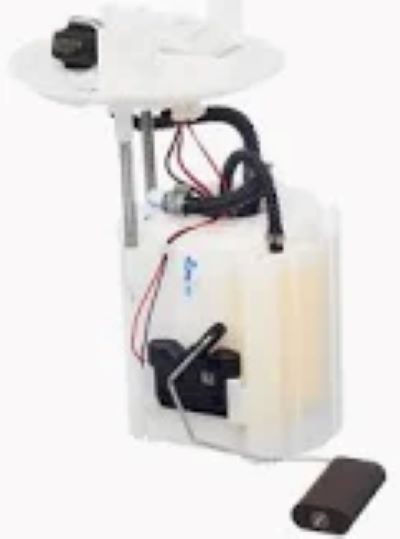Believe it or not, a fuel pump can have a noticeable impact on engine performance. Most vehicles require 40 to 60 psi in order to run and a failing fuel pump will offer very little, or suddenly drop below this. A loss of pressure enough to prevent the engine from achieving peak combustion performance, in addition an amount that reduces acceleration times by greater than 25%
Likewise, an improperly functioning fuel pump can lead to the air/fuel mixture becoming unbalanced. This incorrect blend will subsequently cause the engine to perform with less power, suffer form lethargic acceleration and become sluggish on hills. In fact, the research says that a faulty fuel delivery system can reduce fuel efficiency of up to 15%. That's enough to exacerbate your problem)
According to industry expert Sarah Lee, “Low fuel pressure impacts directly on engine power; if suddenly find your car underpowered, amongst the first things you should check is the fuel pump”. To make matters worse, the pump will have to work harder if the fuel is restricted by a clogged filter, which over time may cause overheating and eventual failure.

If the pump is not providing enough fuel, keep in mind that continuous stalling may result. This is especially notable when demand is high, i.e. under rapid acceleration or during heavy load situations — such as climbing a steep grade where the engine is requiring more fuel to keep up with increased air demand. For owners of vehicles this can be avoided by maintaining the fuel filter changed every 30,000 miles.
Overall, the fuel pump has a significant role in keeping the condition of the engine last longer. However, when the fuel pump kicks the bucket, reduced engine power and higher fuel use can occur while also impacting your ability to enjoy driving. For further details on fuel pump, visit: Fuel Pump. Being proactive will allow you to prevent expensive repairs and also ensure that your car is running at peak performance.